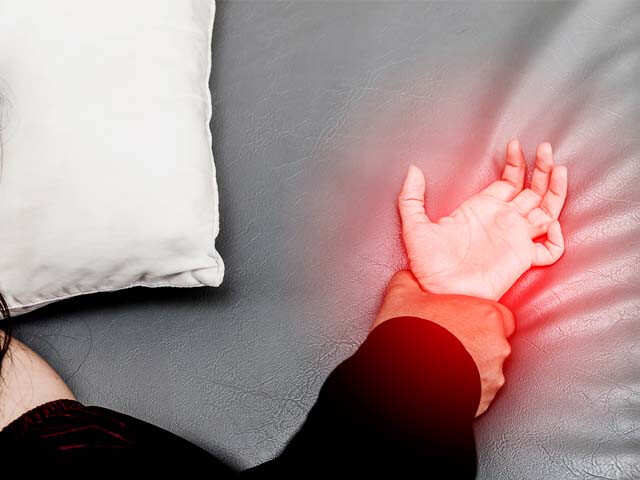A recent case in the Chhattisgarh High Court has revived the issue of whether or not marital rape should be criminalised. Even though numerous changes to criminal laws have been made to safeguard women, the non-criminalization of marital rape in India violates women’s dignity and human rights.
Recent Case
A criminal revision appeal disputing the accusations levelled against the applicant spouse was recently dismissed by the High Court of Chhattisgarh.
A trial court issued charges against him under Sections 376 (rape), 377 (carnal intercourse against the order of nature), and 498A (cruelty towards wife by husband or his family) of the Indian Penal Code, based on his wife’s claims (IPC).
The charges against the husband were upheld under Sections 498A and 377, but he was discharged under Section 376 on the grounds that, under Exception 2 to Section 375 (the definition of rape), sexual intercourse by a man with his own wife (provided she is over the age of 18) does not constitute rape.
No alternative result was available to the High Court because it was constrained by the law, which exempts men from being prosecuted or punished for raping their wives by creating the legal illusion that all sex within marriage is voluntary.
Regardless, the inconsistencies and flaws in Indian criminal law identified by the verdict demand closer examination.
Issues With Marital Rape Exception :-

Inconsistent Provision:
- A spouse can face the same charges as any other guy for sexual harassment, molestation, voyeurism, and forceful disrobing.
- Furthermore, a spouse who is divorced from his wife may be charged with rape (Section 376B).
- However, the exemption for marital rape is incompatible with other sexual offences.
Patriarchal Beliefs:
- The exemption for marital rape is an affront to the constitutional values of human autonomy, dignity, and gender equality established in basic rights such as Article 21 (right to life) and Article 14 (right to equality of opportunity) (the right to equality).
- In Joseph Shine v. Union of India (2018), the Supreme Court ruled that the crime of adultery was unconstitutional since it was based on the idea that after marriage, a woman is her husband’s property.
- The exemption for marital rape reveals a similar patriarchal belief: that a wife’s right to personal and sexual autonomy, physical integrity, and human dignity are all forfeited when she marries.
Destroy the Institution of Marriage:
- The government’s justification for keeping the marital rape exemption is that making it a criminal offence would ‘destroy the institution of marriage.’
▪ Doctrine of Coverture:
- Marital rape’s non-criminalized character dates back to the British era. The ideology of blending a woman’s identity with that of her husband has had a big impact on and resulted in marital rape.
- A married woman was not regarded an autonomous legal person when the IPC was created in the 1860s.
- The marital exception to the IPC’s definition of rape was developed in response to Victorian patriarchal standards that denied men and women equality, barred married women from owning property, and blended husband and wife identities under the “Doctrine of Coverture.”
Against International Obligation:
- The provision emphasises women’s subordination to men, especially within marriage, and goes against our Constitution’s liberal and progressive values. It also goes against India’s international obligations under instruments like the Convention on the Elimination of All Forms of Discrimination Against Women.
- In 2017, the Supreme Court narrowed the exemption, making it impossible for men who assaulted their minor wives to shelter behind it.
- It’s past time for mature women to be treated with the same respect and dignity as men in marriage.
Impacts of Marital Rape on Women :-
- Depression, anxiety, emotional discomfort, and suicidal thoughts are all mental health consequences of marital rape and other types of relationship violence.
- Marital rape and violence have a negative influence on children’s health and well-being, both in terms of the psychological effects of seeing violence and in terms of mothers’ capacity to care for themselves and their children.
- 4 Marital rape victims are more likely to have repeated rape occurrences than stranger or acquaintance rape victims. Victims of marital rape sustain long-term physical damage that are as severe as or more severe than those sustained by stranger rape victims.
- For a variety of reasons, victims of marital rape may choose to stay in their marriage. Fear of additional violence, financial insecurity, a low feeling of self-worth, and a misguided expectation that their spouse would change are among them.
Way Forward :-

Not Against Institution of Marriage:
- In Independent Thought v. Union of India (2017), the government justified the exemption to marital rape by claiming that it was against the sanctity of marriage.
- However, the Supreme Court rejected this allegation, stating, “Marriage is not institutional but personal – nothing can abolish the ‘institution’ of marriage save a legislation making marriage illegal and punished.”
- In this case, marital rape is exempt from the exemption.
Criminalise the Marital Rape:
- “Any act of gender-based violence that results in, or is likely to result in, physical, sexual, or mental harm or suffering to women, including threats of such acts, coercion, or arbitrary deprivation of liberty, whether occurring in public or private life,” according to the United Nations Declaration on the Elimination of Violence Against Women.
- The United Nations Committee on the Elimination of Discrimination Against Women (CEDAW) 5 recommended that the Indian government make marital rape a criminal offence in 2013.
Justice Verma Committee Report:
- The JS Verma committee, which was formed in the backdrop of widespread demonstrations over the gang rape case on December 16, 2012, also proposed criminalising marital rape.
- Women will be safer from abusive spouses, will be able to get the support they need to recover from marital rape, and will be able to protect themselves from domestic violence and sexual assault if this law is repealed.
Women’s Rights Awareness Programme:
- Survivors of gender-based abuse can get refuge, counselling, practical and legal guidance, and other resources through a Kenya-based awareness campaign.
- Educational and preventative activities can be started at the local, state, and national levels to raise awareness.
Conclusion :-

- Husbands and wives now have separate and independent legal identities under Indian law, and much current jurisprudence is particularly focused with women’s protection.
- As a result, it is past time for the government to recognise this legal flaw and eliminate Section 375 (Exception 2) of the IPC, bringing marital rape under the jurisdiction of rape legislation.
